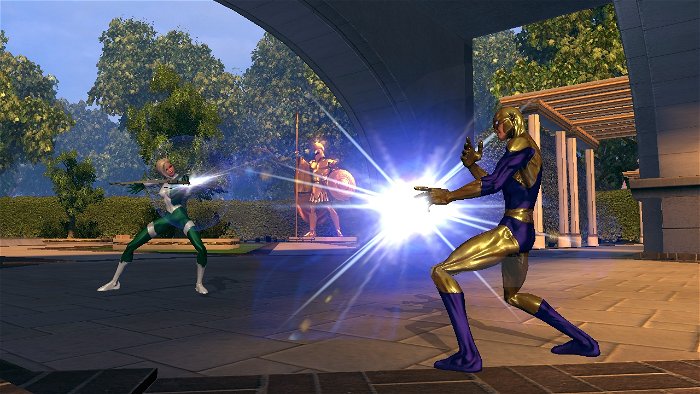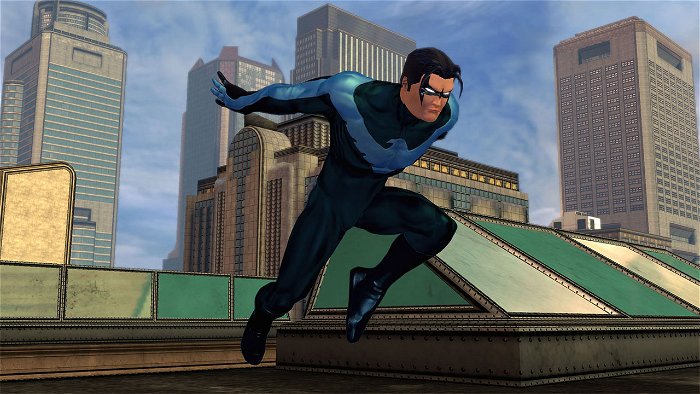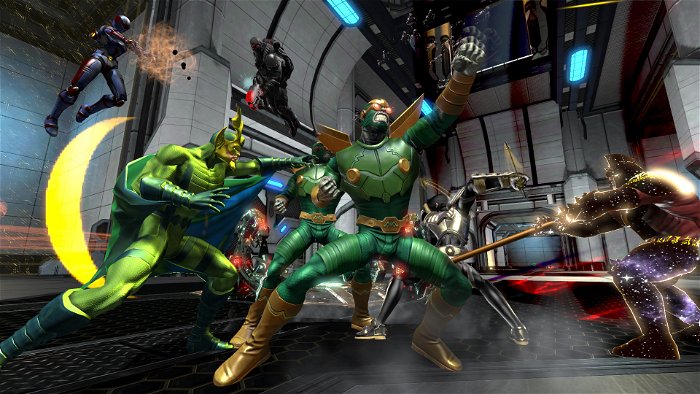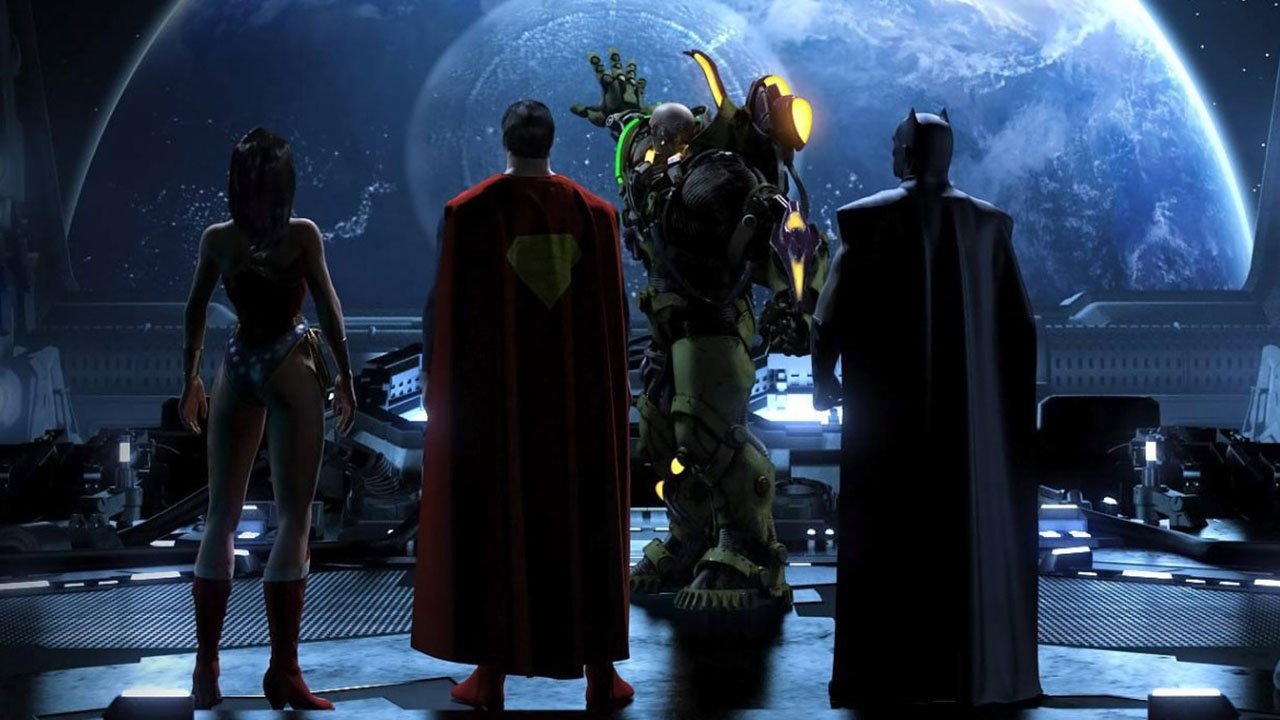DC Universe Online (or DCUO for short) is a game that evolved with a changing industry.
DCUO was originally a PC and PlayStation exclusive under what was then Sony Online Entertainment with a standard subscription model, and has since morphed into a free-to-play experience that thousands of people play every day on a wide range of platforms. Six years later the game is still going strong, now running on PlayStation 4, PlayStation 3, Xbox One and PC, there are no signs of the game slowing down.
With this anniversary now here, we talked with Jack Emmert CEO of Daybreak Austin in an email interview to discuss how the studio is changing, and how the plans for DCUO are changing as time goes on. Free-to-play is a crowded space, and yet Daybreak are managing to carve out a slice of that market, along with bringing the iconic heroes people know and love to a game that is accessible and open to new players.
CGMagazine: How has Daybreak Austin changed since you have taken the reins of the company?
Jack Emmert: I have a long history with MMOs (and free-to-play ones at that), and I’ve been a fan of DC Universe Online since launch, so I was quite excited to come to Daybreak. There is a lot going on behind the scenes, but my main focus upon arrival was the players. First through data to get a better idea of how we can enhance the game experience, and second through communication. I’ve tried to be in front of the DCUO community to explain what is coming up as well as answer any questions. I’m also a very big comic book fan, so I’ve been trying to institute content that really calls out to DC fans. Our anniversary event, for example, stars the Anti-Monitor. He’s not universally recognized like the Joker or Lex Luthor, but if you read DC comics, he’s one of the big arch villains. I also want to give credit to the team out here in Austin; I work with some very talented folks to bring this universe to life.

CGM: DCUO is now going on six years old, how do you feel the fan-base has changed over time, and how has Daybreak as a studio met these new challenges?
Jack Emmert: DCUO still gets A LOT of new players each month, especially on Xbox One as we just launched on that console last April. But the game also has a large number of dedicated fans who’ve been with us for years and hover at the highest levels of the game. As a result, we have to figure out how to make new players feel like part of the established community and have fun, while still always adding content to our end game.
We’ve done a couple things to address this. Recently, we’ve trended away from the monthly content drops in favor of larger, more thematic updates every quarter. And this month, we’ve introduced an event that nearly EVERYONE can participate in, regardless of levels. Of course, we still continue to increase our end game levels too. I think the coming year is going to be about satisfying both audiences.
CGM: Now that Daybreak Games is pushing for all platforms including Xbox One, PlayStation 4 and PC, do you find your audience and fan-base has changed?
Jack Emmert: Our players, regardless of the platform, all want a fun and immersive gameplay experience. I’ve found that a lot of PC players are very much into the massive multiplayer aspect – they’ll communicate and interact more like groups would in a MMO raid – whereas many console players are more visceral and tend to focus on the destructibility and damage aspect. But that’s a gross generalization, and I’ve seen the opposite happen as well. All in all, when you look at the data, the groups are practically identical in terms of behavior.

CGM: Could you talk about how you are implementing more aspects of the DC Universe into the game as time goes on?
Jack Emmert: Just like the majority of our DCUO team, I lean heavily on my comics knowledge to inspire content for DCUO. To give some context: when I moved out here to Austin from San Jose, my comics had to be weighed for shipping — 1.2 tons! I’ve been reading voraciously since 1976 (no I won’t tell you how old I am!). A lot of what we’re planning really starts from that background. I’d like to hit the big characters and storylines that fan boys love. You see this with the anniversary event with the Anti-Monitor – it’s just going to keep going from there.
We’re also paying careful attention to the great movies coming up. While we don’t just want to recreate those storylines directly, we will use those moments for a chance to delve into the characters more from a comics lore side of things.
CGM: What characters or story lines featured in the DCUO would you love to implement that you have not had a chance to yet?
Jack Emmert: My great love in DC is for the Justice Society, and the Golden Age. I loved the Seven Soldiers of Victory – both the classic, and the recent Grant Morrison version. The old Ostrander series was groundbreaking for its day. I’m enjoying recent Detective Comics and the growth of the Batman family. The Legion of Super Heroes, and their foes, the Fatal Five and Mordru, could also be neat to explore. I’m a huge DC geek and there are a lot of fantastic characters and storylines out there. I’m not saying that any of these will be implemented, but these are just some of my favorites.
CGM: Moving forward, are there any lessons you have learned that you want to utilize in future projects.
Jack Emmert: My biggest takeaway over the years is that I should know my game as well as our players. I should never be disconnected from what the players are experiencing. So I’m grinding end game – just about every day. I’m a sorcery DPS build – just dinged combat rating 99 (I’m not super high level, but I am trying). This to me is vital, because it’s impossible to have any clue about what would get people to play unless I myself have a good idea of what would drive me to play.
The second lesson is communication – internal and external. Always let the team know what’s going on. Try to explain to the community what’s happening. Get feedback. Provide explanations. Be as transparent as possible. People might not always agree (that’s natural), but at least they’ll understand where I’m coming from.
CGM: Where do you see the MMO industry going? Do you see the Free-to-Play model being the normal going forward?
Jack Emmert: The era of traditional “MMO” gaming is evolving as players are looking for options to play in immersive virtual worlds on their schedule, and on multiple platforms. Most don’t have the time commitment necessary to raid for hours, so they want to the ability to play a short session. With that, I think the term “MMO” is pretty much disappearing. You see games like Tom Clancy’s The Division and Destiny utilize MMORPG gameplay mechanics freely, though they’ve never applied and marketed the term for themselves.
But, the longevity and the core element of the MMO experience really comes down to community. It doesn’t matter if you’re playing on a smaller map with 50 other people or a huge map with hundreds of others. The interaction with other players has been and will continue to be at the heart of the online gaming experience.
Business models are constantly evolving and should be tailored to the design of an individual game. I don’t think free-to-play is the standard, if only because Guild Wars, Destiny and Tom Clancy’s The Division survive quite well by selling a box product. But, I think these games, as well as many others, must embrace microtransactions; that’s a part of the free-to-play business model that is here to stay.

CGM: How do you feel the Free-to-Play game model changes development, and do you think it allows for more innovation or less?
Jack Emmert: Certainly, free-to-play adds another dimension to think about during development. In box product development, a team just needs to think about making the game entertaining so that someone feels that they’ve spent their money to purchase it wisely.
Free-to-play means that developers need to think about what’s going to keep a player in the game not for just a few hours, but for months, years or even decades. And, not only that, but the team also needs to consider what they can offer a player that’s worth purchasing. With free-to-play, the team needs to think about managing a sustainable business while also pleasing the players. To do this properly, the team really needs to have a dialog with their community so that they can deliver to the players what they want to purchase. In many ways, good free-to-play development is much more player-centric than traditional game development.
CGM: What is next for Daybreak Austin?
Jack Emmert: Continued support for DCUO, of course. As for anything new, well, my lips are sealed!




